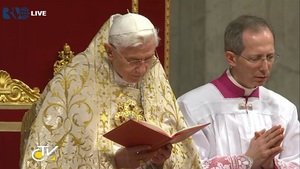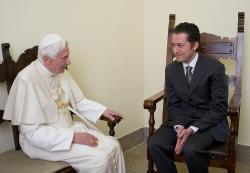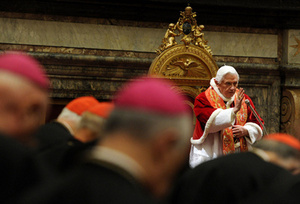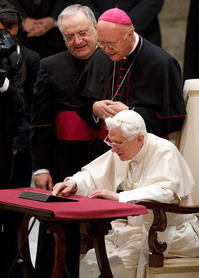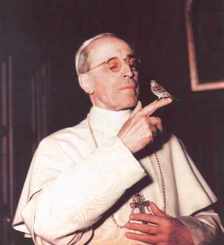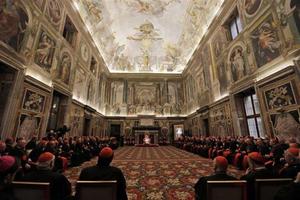
Pope Benedict
gave his annual address, a "State of the Church," if you will, to the curial officials
of the Holy See today.
You might say the content talk is crucially relevant for the
work of the Church and the proclamation of the Gospel as he reviews key events
and focuses on some themes. Among many things which need our attention and reflection,
the Pope spoke about nature of man, family life, and inter-religious dialogue.
Regarding man in which he gave insight into, he speaks of how evil and destructive vague and
ideological the "gender conscious crowd" is to the nature of the person and removes God from conversation. Read the full text here.
The Pope notes the crisis of the family and its effect on society, caused by the
unwillingness to make a commitment and by unwillingness to suffer. But he
goes beyond the symptoms to diagnose the cause of the crisis. This talk is not an attack, it is an appeal to truth.
Each of Pope
Benedict's addresses to the Roman Curia are important, certainly the 2005
address stands out, but today's will be memorable.
Here's a section:
First of
all there is the question of the human capacity to make a commitment or to
avoid commitment. Can one bind oneself for a lifetime? Does this correspond to
man's nature? Does it not contradict his freedom and the scope of his
self-realization? Does man become himself by living for himself alone and only
entering into relationships with others when he can break them off again at any
time? Is lifelong commitment antithetical to freedom? Is commitment also worth
suffering for? Man's refusal to make any commitment - which is becoming
increasingly widespread as a result of a false understanding of freedom and
self-realization as well as the desire to escape suffering - means that man
remains closed in on himself and keeps his 'I' ultimately for himself, without
really rising above it. Yet only in self-giving does man find himself, and only
by opening himself to the other, to others, to children, to the family, only by
letting himself be changed through suffering, does he discover the breadth of
his humanity. When such commitment is repudiated, the key figures of human
existence likewise vanish: father, mother, child - essential elements of the
experience of being human are lost".

